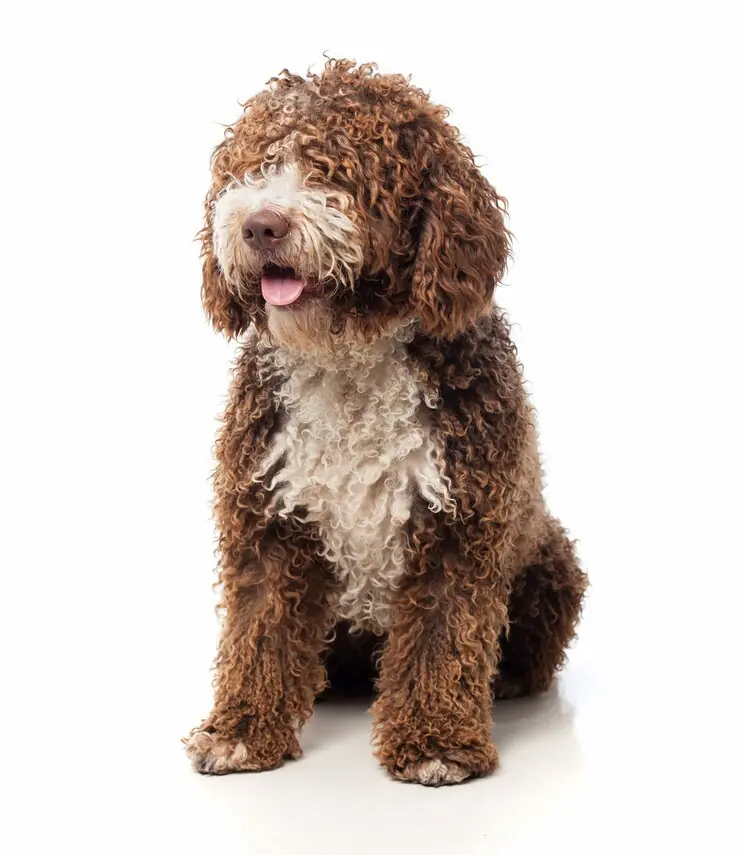Goldendoodle dogs have taken the dog world by storm in recent years. But what makes them such a popular choice? Let’s explore whether Goldendoodles are truly good pets and what you need to know if you’re considering one for your family.
1. Introduction to Goldendoodle dogs

Goldendoodles are a hybrid breed, a cross between a Golden Retriever and a Poodle. They’ve become highly sought after for their lovable personalities, low-shedding coats, and trainable nature. Whether you’re looking for a fun companion or a dog that fits well into family life, the Goldendoodle might be exactly what you’re searching for.
2. The Origin of Goldendoodles
The Goldendoodle was first bred in the 1990s, a time when designer dog breeds were becoming more popular. The goal was simple: to create a dog with the friendly temperament of a Golden Retriever and the hypoallergenic coat of a Poodle. Today, they’re known for excelling in both of these areas, making them a beloved choice for families and dog lovers alike.
3. Goldendoodle dogs Appearance

One of the fascinating things about Goldendoodles is their variety. Depending on whether a Miniature, Toy, or Standard Poodle is used in the breeding process, Goldendoodles can range in size and appearance.
- Size: They come in different sizes — from Mini (15-30 lbs) to Standard (45-100 lbs).
- Coat Types: Their coats can be curly, wavy, or even straight. Some Goldendoodles resemble their Poodle parent more, while others lean toward the Golden Retriever side.
- Colors: These dogs can come in various colors, including cream, apricot, red, black, and even multi-colored patterns.
4. Temperament of Goldendoodles
Goldendoodles are known for their friendly and outgoing nature. They’re affectionate, and social, and thrive in environments where they get plenty of attention. They’re also quite adaptable and can be just as happy playing in the backyard as they are snuggling on the couch. Their playful energy, combined with their affectionate nature, makes them great pets for most households.
Related: Why is My Akita So Small And Skinny? (Reasons)
5. Are Goldendoodles Good for Families?
In short, yes! Goldendoodles are fantastic family pets. They are incredibly patient, and gentle, and love to be around people. Whether you have a small family or a big bustling household, Goldendoodles can adapt to your home environment and become an integral part of your family.
6. Goldendoodles and Children

If you have kids, Goldendoodle dogs may be an ideal choice. They are gentle and patient, which makes them great playmates for children of all ages. They have a natural ability to bond with kids and are known for their tolerance and love for family members of all sizes.
7. Goldendoodles and Other Pets
Goldendoodles generally get along well with other pets. Their friendly and social nature extends to both other dogs and even cats. Proper socialization from a young age will ensure that your Goldendoodle knows how to interact respectfully with all animals in your home.
8. Training and Intelligence
With both the Poodle and Golden Retriever as their parent breeds, it’s no surprise that Goldendoodles are intelligent and easy to train. They are eager to please, making them quick learners. Whether you’re teaching basic commands or more advanced tricks, you’ll find that your Goldendoodle responds well to positive reinforcement and consistent training.
9. Exercise Needs
Goldendoodles are active dogs and need regular exercise to keep them happy and healthy. Depending on their size, they may require more or less physical activity, but generally, a daily walk and some playtime will suffice. They love activities like fetching, running, and even swimming, so they’re perfect for families who enjoy spending time outdoors.
10. Grooming Requirements
While Goldendoodles are known for being low-shedding, they do require regular grooming. Their coats, particularly if curly, can mat easily if not brushed frequently. Regular trips to the groomer are recommended to keep their coats looking their best. Additionally, it’s essential to clean their ears and brush their teeth regularly to prevent infections and dental issues.
11. Health Considerations
Like all dogs, Goldendoodles can be prone to certain health conditions. Common issues include hip dysplasia, allergies, and ear infections. However, with proper care and regular vet visits, many of these issues can be managed. On average, Goldendoodles have a lifespan of 10 to 15 years.
12. Hypoallergenic Traits
One of the most appealing qualities of Goldendoodles is their hypoallergenic coats. While no dog is entirely hypoallergenic, Goldendoodles are considered to be one of the best breeds for people with allergies. Their low-shedding coats mean there’s less dander floating around, making them a more suitable option for those sensitive to pet allergens.
13. Do Goldendoodles Fit All Lifestyles?
Goldendoodles are incredibly adaptable, which makes them suitable for various living environments. Whether you live in a small apartment or a large house, a Goldendoodle can fit right in. However, keep in mind that they need regular exercise, so you’ll want to make sure they get enough physical activity even in smaller spaces.
14. Goldendoodles as Therapy Dogs
Because of their gentle, calm, and affectionate nature, Goldendoodles make excellent therapy dogs. They are often used in hospitals, schools, and care facilities to provide comfort and emotional support to those in need. Their intelligence and easy-going temperament allow them to excel in this role.
15. How to Choose a Goldendoodle
If you’ve decided that a Goldendoodle is the right fit for your family, it’s important to find a reputable breeder or rescue organization. Look for breeders who prioritize health testing and ethical practices. Make sure to ask about the parent’s health history, the type of Poodle used in breeding, and any socialization or training that the puppies have received.
Conclusion
Goldendoodles are not just adorable—they’re affectionate, intelligent, and great for families of all shapes and sizes. Whether you’re looking for a playful companion for your kids, a hypoallergenic pet, or a dog that’s easy to train, the Goldendoodle is a wonderful option. Just be sure to meet their grooming and exercise needs, and they’ll reward you with endless love and companionship.
Unique FAQs about the Goldendoodle Dog Breed?
Q: Are Goldendoodles hypoallergenic?
Yes, Goldendoodles are low-shedding and more tolerable for people with mild allergies, but no dog is completely hypoallergenic.
Q: How much exercise do Goldendoodles need?
Goldendoodles are active and need at least 30-60 minutes of exercise daily to stay healthy and prevent boredom.
Q: Do Goldendoodles get along with other pets?
Yes, Goldendoodles are generally friendly and sociable, making them good companions for other pets, including cats.
Q: Are Goldendoodles easy to train?
Absolutely! Goldendoodles are intelligent and eager to please, which makes them quick learners when it comes to training.
Q: How often should I groom my Goldendoodle?
You should brush your Goldendoodle’s coat regularly, especially if it’s curly, and schedule professional grooming every 6-8 weeks to keep their coat in top condition.
Q: Are Goldendoodles good with children?
A: Yes, Goldendoodles are known for their friendly and gentle nature, making them great companions for children.
Q: How much exercise do Goldendoodles need?
A: Their energetic nature requires regular exercise, including playtime and walks, to keep them physically and mentally stimulated.
Q: Do Goldendoodles shed a lot?
A: The shedding level varies among individuals, but overall, they are considered to be low to moderate shedders.
Q: Can I groom my Goldendoodle at home?
A: Yes, with the right tools and knowledge, some grooming tasks can be done at home. However, professional grooming is recommended for certain tasks.
Q: Are Goldendoodles prone to specific health issues?
A: While generally healthy, they may be susceptible to issues like hip dysplasia. Regular vet check-ups help in early detection and management.
Did you find this post useful? Save THIS PIN to your Dog board on Pinterest 🙂

